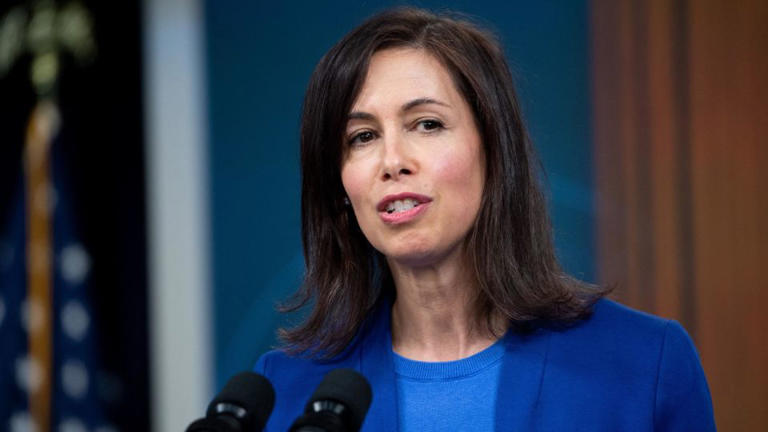FCC AI rules, political ads, AI-generated content, deepfakes, election transparency, artificial intelligence, political advertising regulations, Jessica Rosenworcel, AI in elections
“The FCC is proposing new rules requiring political ads on TV and radio to include disclaimers about AI-generated content. This initiative, led by Chairwoman Jessica Rosenworcel, aims to ensure transparency and protect election integrity amid growing concerns about AI deepfakes.”
The Federal Communications Commission (FCC) is embarking on a significant regulatory initiative aimed at addressing the use of artificial intelligence (AI) in political advertising. FCC Chairwoman Jessica Rosenworcel has proposed new rules that would mandate disclaimers for political ads on TV and radio when AI-generated content is used. This move is a response to growing concerns about the potential impact of AI-generated deepfakes on elections.

Proposal and Objectives
On Wednesday, Chairwoman Rosenworcel urged her fellow commissioners to support the new regulations. In a news release, she emphasized the need for transparency, stating, “As artificial intelligence tools become more accessible, the Commission wants to make sure consumers are fully informed when the technology is used.” She further expressed her hope that the commissioners would act swiftly on the proposal, which she believes will uphold consumers’ rights to know when AI tools are utilized in political ads.
The proposed rules aim to initiate a rulemaking process at the FCC, expected to unfold over several months. These rules would apply to broadcast TV, radio, cable, and satellite providers, requiring political advertisers to disclose on-air if their ads contain AI-generated content. Additionally, written disclosures would need to be included in the public files that broadcasters are required to maintain. However, the FCC’s jurisdiction does not extend to internet-based media, such as streaming video services or social media platforms.
Regulatory Context and Legislative Efforts
This initiative by the FCC seeks to address a notable gap in the regulation of AI in political advertising. Current U.S. election law prohibits campaigns from “fraudulently misrepresenting other candidates or political parties,” but its application to AI-generated content remains ambiguous. Last year, an effort to extend this prohibition to AI-created depictions was blocked by Republicans on the Federal Election Commission (FEC). While the FEC has revisited the discussion, a definitive decision has yet to be reached.
In parallel, some U.S. lawmakers have introduced legislation targeting the use of AI in elections. In March, Democratic Senator Amy Klobuchar of Minnesota and Republican Senator Lisa Murkowski of Alaska proposed the AI Transparency in Elections Act, which would require AI disclaimers on political ads. Senate Majority Leader Chuck Schumer, a Democrat from New York, has also highlighted the urgent need for Congressional action to regulate AI, particularly in the context of elections. Despite this urgency, many policy analysts remain skeptical about the passage of significant AI legislation in an election year.
Industry Responses
Some online platforms have proactively addressed the issue of AI in political ads. Meta, for instance, has mandated that political campaigns disclose the use of deepfakes and has banned the use of its proprietary generative AI tools for political advertising.
Conclusion
The FCC’s proposed rules represent a critical step toward ensuring transparency in political advertising in the age of AI. As AI technology becomes increasingly pervasive, the need for clear regulations to prevent misuse and protect the integrity of elections is paramount. The unfolding rulemaking process at the FCC, coupled with ongoing legislative efforts, underscores the growing recognition of the importance of addressing AI’s impact on the political landscape.
Read More-
- Fulton County DA Fani Willis Triumphs Over Democratic Primary Opponent
- Grammy Awards 2025: Date, Venue, and Anticipations for the 67th Annual Ceremony
- Federal Investigation Launched into Fatal VinFast EV Crash in California
- Discover the Best Cities to Live in the US for 2024: Top 10 Ranked by U.S. News World Report